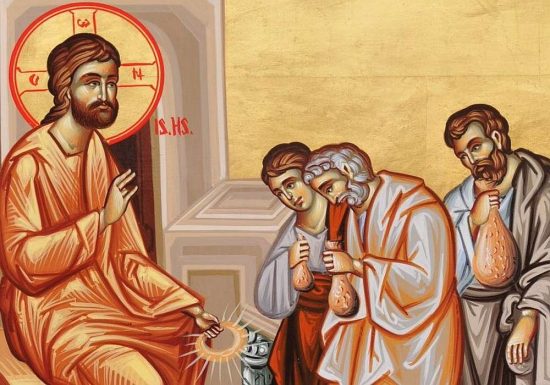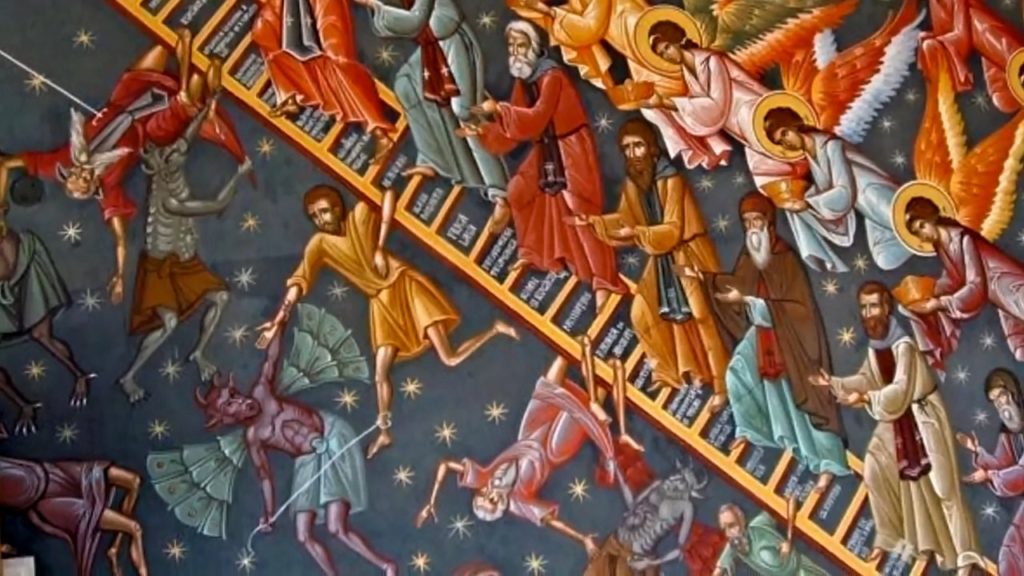The 11-th Sunday after Pentecost (The Parable of the Unmerciful Servant)
A lesson is offered to us every time, full of meanings but also perplexities, through the reading of the Gospel passage assigned for the celebration of the Holy Liturgy on the 11th Sunday after Pentecost. The Savior Jesus Christ presents in the Parable of the Unforgiving Debtor contrasts that serve to clarify our daily approach to the Christian life: boundless mercy as well as pedagogical anger with a preventive role. Both contrasts are highlighted by managing the conglomerate of obligations that accumulate on the rock of human stubbornness in not being able to forgive like the Lord.
Most of the time, forgiveness is seen as an act of goodwill, of breaking free from selfishness, as well as an expression of appreciation and love. Emphatic expressions about forgiveness, when approached purely theoretically, resemble illusions that capture a perspective bordering on hypocrisy. Definitions of forgiveness, seen as a technical concept, are well-known. However, the journey from words to actions regarding the granting of forgiveness is terribly arduous. The Gospel passage reflects the human incapacity to forgive completely, as the Merciful God does.
The ease with which the debtor-king in the Gospel of this Sunday can forgive an immense accumulated debt leads us into a realm of bewilderment. The following questions arise: How could the debtor accumulate such a huge debt, and especially, how did the Master allow him to reach this hopeless situation? The answer can be coherently formulated only if we understand the term that Savior Jesus Christ uses when presenting the Master. He is seen as the man-king (Latin: homini regi, Greek: άνθρωπω βασιλει). It is clear from this expression that the personality of this Master does not consist solely of earthly elements. On the contrary! The designation of man-king signifies an entity that involves the refinement of the human element and grafting it onto the imperial vine related to heaven. Consequently, two integrated qualities emerge, without their mixture, reminiscent of their mysterious union in the person of the Lord Jesus Christ, the true man and incarnate God. Thus, Savior Christ reveals Himself as Merciful and Forgiving in this parable. Therefore, the forgiveness of the debt is granted without any concessions from the Forgiver. The servant’s delusion that he can repay the entire debt becomes utopian and unrealistic. The man-king is aware of this. But why does he forgive him, knowing that he will never be able to repay the owed sum? One answer could be that the debtor reaches a point of sincerity through prostration before the Master. It becomes an act of worship, a connection that shows that the debtor surrenders himself entirely, belongs wholly to the Master, which represents his entire worth! It is here that the spark is ignited, which will generate the act of forgiveness. The debtor’s words, “Master, have patience with me, and I will pay you everything,” are unrealistic, probably followed by many illusory commitments. Therefore, the Master stops the servant from making unfounded promises, not to put him in a situation where he has to fulfill his word without the necessary backing.
The inability to imitate mercy
The forgiven servant, an icon for each one of us, especially after going through Confession, quickly and easily forgets the act of surrendering oneself at the feet of a fellow human being. He forgets the sincere worship that took place just moments before. He forgets the worship that had just relieved him from tormenting perspectives. What’s more, the mercy shown by the Master does not seem to overshadow him. Not at all! With utmost hypocrisy, the servant who was at a turning point in their life not long ago, arrogantly and brutally persecutes another fellow human, presuming him guilty, over a minimal and manageable sum that would not cause any loss. The violent reaction of the freshly forgiven tormentor does not indicate any gesture of mercy, despite invoking forgiveness, just as the merciless one groaned the same words: “Have patience with me, and I will pay you!” The barely forgiven servant fails to imitate the mercy of the human-king. In fact, he fails to rise, through granting forgiveness, to the imperial act of granting pardon. It remains mere human! He does not wish to become king himself, sharing mercy in turn. It seems that imitating mercy becomes exceedingly difficult. Instead of growing through forgiveness and daring to become a king, the human remains in the dangerous abyss of his egocentrism.
The community’s reaction – a judgment that exposes hypocrisy
Observing the injustice done to their fellow servant, the other servants show solidarity and inform the human-king about the unjust actions of the unworthy one who was forgiven. The community’s judgment draws the merciless verdict of the human-king: he hands him over to the tormentors until he fully pays his debt. In other words, he puts him in a position to fulfill the promise he made regarding the repayment of the debt. In addition to this, the tormenting atmosphere becomes a constant presence until the exorbitant sum is returned. The community has intervened, balancing the discrepancy created by the lack of mercy from the recently forgiven but unrepentant servant.
The debt, awakening perspectives
The parable spoken by Jesus Christ concludes with a warning that points to the Final Judgment carried out by God the Father. The forgiveness that the Lord Jesus brings into the world and shares with humanity, regardless of the enormity of the debts they have left unpaid, involves a process of imitation that aims to rescue humans from the chaos of their lack of mercy. The multiple debts that we register and accumulate day by day grow dizzyingly and threaten us. The moments of divine mercy that we benefit from excessively, often without realizing it, are opportunities to awaken our being so that it does not indulge in strictly human manifestations. You have debts, and you must repay them exactly, without any appeal! Overcoming this overly earthly way of thinking indicates our alignment with the imperial and merciful dignity to which humans are called to adhere. Aware of the multitude of accumulated and impossible-to-repay debts, we have the chance to be filled with imperial mercy, just like the Lord. This does not mean that we should accumulate debts without the necessary discernment to honorably repay them. Debts represent precisely those situations in which you can no longer manage with what you have and you turn to someone who has the resources to offer values that, at some point, you must return. This is meant to create truly human relationships. It becomes clear that a Christian approach to debts goes beyond the material economic impact generated by institutions or individuals who can provide support in difficult situations based solely on loan contracts with obligations, without any prospects of abolishment. In the Christian perspective, immense debts can become a litmus test of our capacity to partake the mercy unconditionally shared by the One who allowed us to remember this work through the Lord’s Prayer. Our mistakes, understood in the original Latin and Greek terms (debita nostra and τα όφειλήματα ήμων, respectively), designate nothing other than our debts that we are called not to hypocritically condemn our fellow human beings for, but rather to have the power to forgive them, aware that we ourselves have benefited from the imperial mercy of our heavenly Master, who expects us to demonstrate manifestations of grace in proportion to our forgiveness.
Rev. Lect. Dr. Grigore-Alexandru Meșteroaie
Source: http://ziarullumina.ro









